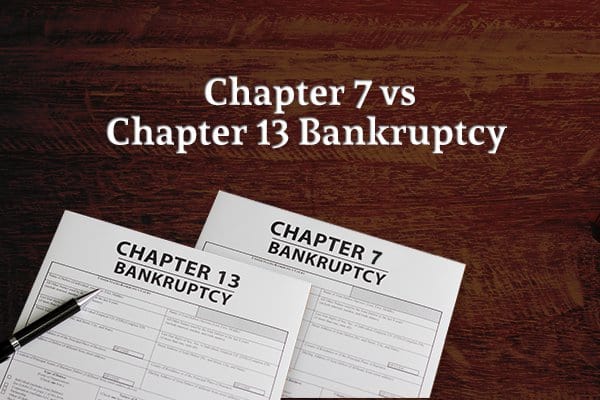Chapter 7 vs Chapter 13 Bankruptcy: You have finally reached the edge of your finances. You already tried everything. You consolidated your debts, sold off your assets, and even went for credit counseling, all to no avail.
What should you do next, then?
One of the steps you can take next is to decide on the type of bankruptcy you should file. Two types of bankruptcies that you can file are Chapter 13 and Chapter 7.
The key difference between these two is that one involves the payment plan for paying off at least some of your debts and the other is one that get rids of your debts.
Read on below to know more about Chapter 7 vs. Chapter 13 Bankruptcy to know the one that best suits you and your situation.
An Overview of Chapter 7 Bankruptcy:
The US Bankruptcy Code’s Chapter 7 is one form of bankruptcy for those whose income is quite limited. You will be qualified for Chapter 7 bankruptcy if you passed the means test showing your income has fallen below the figure that your state has set. You should visit the official website of the Department of Justice to learn about this means test and the income levels in your state.
Filing for Chapter 7 bankruptcy can wipe out all of your unsecured debts such as payday loans, medical bills, and credit cards.
How Does Chapter 7 Works?
Upon filing for this type of bankruptcy, the court will choose your case’s trustee. Part of the responsibilities of a trustee includes liquidating or selling off some types of assets you have. This money is meant for paying your creditors.
The properties that you can liquidate under Chapter 7 are the following:
- A second vehicle
- A second home
- Bank accounts
- Cash
- Valuable collections
- Stocks
However, you can still save some of your assets from being chopped off. These exempt assets might include the car you are using for work, your primary home, pensions, Social Security checks, equipment you are using for work, retirement and welfare savings accounts, and veteran’s benefits.
An Overview of Chapter 13 Bankruptcy
The US Bankruptcy Code’s Chapter 13 will restructure your debt and might also get rid of a part of it, allowing you to make payments that are more manageable. With this type of bankruptcy, there is no need to lose or liquidate any assets you have since you will make regular payments so you can keep them.
This often works best for those who have steady income who could still manage to make payments on a regular basis. If you have a too big income to be qualified for Chapter 7 bankruptcy, the only option left for you is Chapter 13 bankruptcy.
How Does Chapter 13 Bankruptcy Work?
After filing for Chapter 13 bankruptcy, a trustee will be assigned to you to help you schedule meetings with the creditors and come up with a payment plan for some or all your debts over a certain period that can range from 3 to 5 years. Your plan’s terms are dependent on your debts and income.
The main benefits of Chapter 13 bankruptcy are the following:
- Financial protection of co-signers
- Rescheduling secured debts to have lower payments
- Potentially save your house from foreclosure
We hope you understand all about Chapter 7 vs Chapter 13 Bankruptcy in this article.

